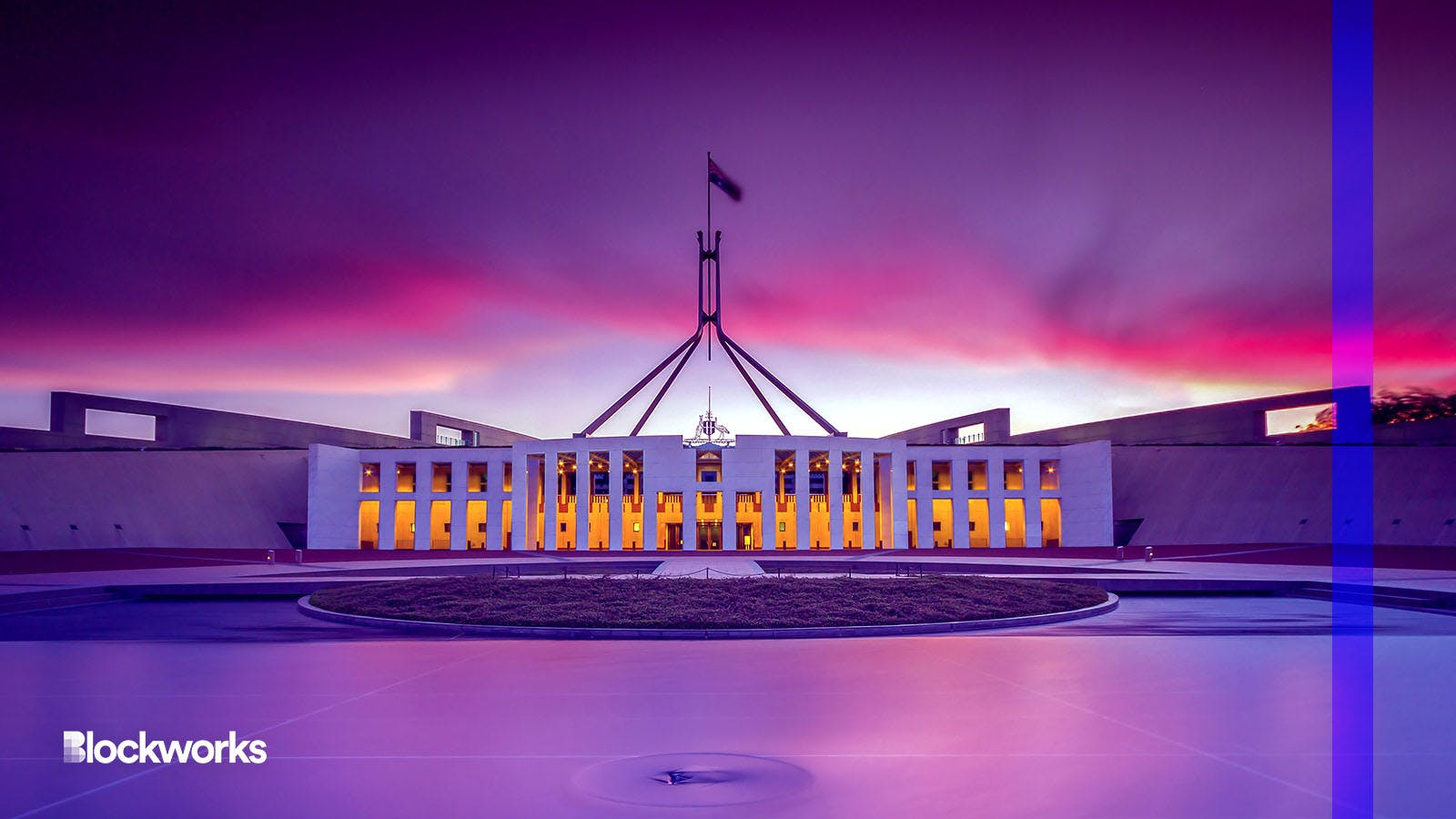Senate committee opposing crypto bill poses legislative roadblock in Australia
The committee found the proposed legislation could lead to regulatory arbitrage, potentially undermining the digital asset industry in Australia

Heath Doman/Shutterstock, modified by Blockworks
Australia’s Senate Economics Legislation Committee has recommended against passing a key digital asset bill, citing it as an inadequate vehicle for implementing regulation in the country.
The Digital Assets (Market Regulation) Bill, first introduced by Liberal Senator Andrew Bragg in March, aimed to create a licensing framework for digital assets including cryptocurrencies and CBDCs.
The committee, while supportive of further regulation for the industry, raised several concerns on Monday, according to the committee’s report.
Notably, it emphasized Australia’s existing financial product regulations are well-developed but found that digital assets require further legislative attention.
“The bill lacks the detail and certainty that investors, consumers, and the industry should be provided with,” the committee said in its report.
Australia is currently in the midst of regulatory reform surrounding the asset class. A three-stage approach, under the incumbent Labor government, will initially bolster resources for the country’s securities regulator, ASIC. The aim will be to increase surveillance around registration.
The second and third stages will see the reformation of licensing and custody rules for digital asset service providers as part of findings from the “Australia as a Technology and Financial Centre Senate select committee” spearheaded by Bragg two years ago.
The committee’s recommendations on Monday will likely slow down the legislative process but aim to ensure a more stable and robust framework for digital asset regulation in Australia.
One of the major shortcomings of the legislation, the committee said, is its misalignment with international regulatory standards, a concern voiced by multiple inquiry participants.
Adding to the regulatory concerns, the committee expressed apprehension that the bill’s insufficient integration with the existing financial regulatory landscape could lead to regulatory arbitrage, potentially undermining the digital asset industry in Australia.
Despite its criticism, the committee commended the Australian Government’s recent initiatives to consult with industry stakeholders, terming them as “the most appropriate approach” for future digital asset regulation.
“Well-designed digital assets regulation can strike the right balance between improved consumer protections and support for industry development,” the committee said.
While it has stalled further legislative progress, the committee is urging the government to continue its consultations to craft more suitable legislation.
Get the news in your inbox. Explore Blockworks newsletters:
- The Breakdown: Decoding crypto and the markets. Daily.
- 0xResearch: Alpha in your inbox. Think like an analyst.






